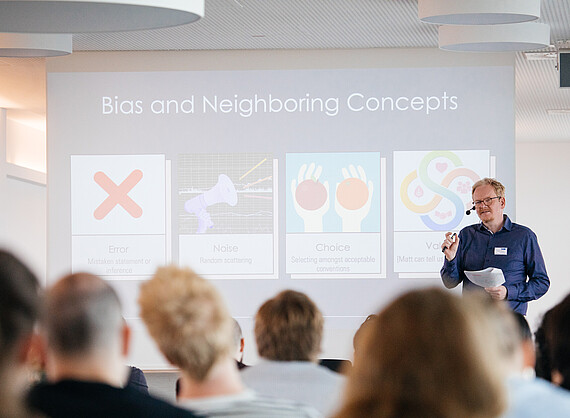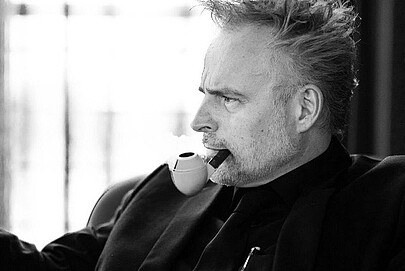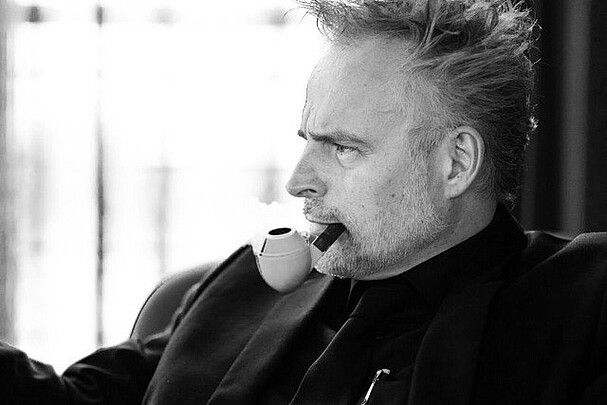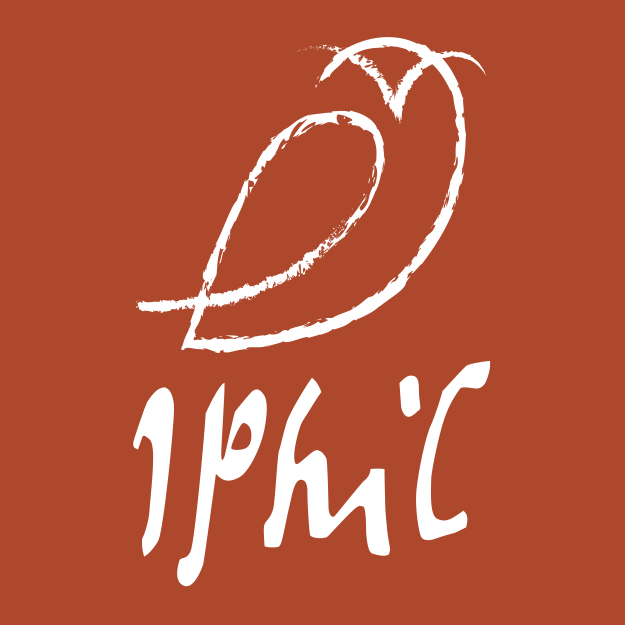Programme in a Nutshell


 ©
Flammarion: Atmosphère, 1888, p. 163, bearb. Heikenwaelder, Wikimedia Commons
©
Flammarion: Atmosphère, 1888, p. 163, bearb. Heikenwaelder, Wikimedia Commons
Why should we trust the findings of science? What, if anything, makes scientific knowledge special? Is scientific knowledge objective? What is the role of experiment and empirical evidence more broadly in supporting scientific findings? In our two-year international degree programme you will engage with these questions, investigating what the status of scientific knowledge is and what role scientific knowledge claims can play in public policy debates.
In our Master’s programme you will be taught philosophical methods and tools needed to understand what kind of knowledge the sciences can provide. These tools will also enable you to critically examine scientific knowledge claims as well as challenges to the authority of science. You will also have the opportunity to engage with philosophical questions arising within particular scientific disciplines: how did twentieth century physics change our understanding of the nature of space and time and what precisely is so “weird” about the quantum world? How do climate models represent features of the climate system? What exactly are we referring to when we talk about "society"?
Here you will learn more about the programme, how to apply, and what we do in Hannover.
What is Philosophy of Science?
-
Click here to learn more!
What is philosophy of science?
Not only our understanding of the world in but the world we live in itself is profoundly shaped by science and technology. This central role of science in modern societies raises many important and pressing philosophical questions. Scientific claims appear to have a special authority: they seem to be objective and reliable in ways in which other beliefs are not. Yet scientific claims are also frequently contested. What, then, is the source of science’s special claim to knowledge? What role should scientific expertise play in democratic decision-making processes? What is the proper role of moral and political values in science?
Much of scientific activity also consists in constructing models of different parts of the world (in sciences as diverse as climate science, economics, psychology, or epidemiology). But do these models aim to represent features of the real world as accurately as possible or are they merely useful tools—practical devices that help us find our way around in the world?
Other philosophical questions concerning our understanding of science include: What relationships do scientific theories and hypotheses bear to empirical data and evidence? What counts as evidence? Does the world contain natural divisions among different types of things and, if so, how can we discover what these are? What does it mean to explain a phenomenon? Philosophy of science investigates these and other domain-specific questions as they arise across the various special sciences, such as physics, biology, psychology, or economics.
Why study philosophy of science?
Our master’s program allows students to engage with the central issues in philosophy of science in an international and interdisciplinary learning environment and our rigorous, research-led programme offers a range of valuable benefits to students:
1. Intellectual Development:
-
Critical Thinking: Enhances your ability to think critically about complex issues and evaluate arguments rigorously.
-
Analytical Skills: Improves your capacity to analyze and synthesize information from diverse sources and to develop and articulate informed views on important issues.
2. Research Skills:
-
Methodological Training: Familiarizes you with transferable analytical and research methods used in philosophy and other academic disciplines.
3. Career Opportunities:
-
Academia: Prepares you for further studies and a potential academic career in philosophy or related fields.
-
Science Policy and Ethics: Qualifies you for jobs in science policy and science management.
-
Consulting and Advisory Roles: Opens opportunities in consulting, where critical thinking and ethical reasoning are valued.
4. Societal Impact:
-
Public Discourse: Enhances your ability to contribute to public debates on scientific and technological issues.
-
Ethical and Policy Decisions: Equips you with tools to address ethical and policy issues in scientific practice and technology.
-
Science Communication: Improves your ability to communicate complex scientific ideas clearly and effectively.
-
The entire programme is taught in English, but you may take additional philosophy courses in German.
What will you learn?
In addition to the core curriculum in philosophy of science our programme also offers students specialisations in the philosophy of different special sciences, in ethics and political philosophy, and in epistemology and metaphysics. We offer a wide range of seminars in our programme that help students build core analytic competencies and engage cutting-edge research topics. Some recent seminars include:
- Models, Explanation and Computer Simulations in Science
- AI in Science and Society
- Philosophy of Quantum Mechanics
- Social Epistemology of Science
- Philosophy of Psychology
- History and Philosophy of Measurement
- Philosophy of Rights
- Explaining the Social World
You can check out our English courses in Summer semester 2024 here.
Who does this programme speak to?
The MA Philosophy of Science is designed for students who have completed their undergraduate studies in philosophy or in a relevant scientific discipline (whether as a major or a minor), and wish to expand and deepen their philosophical skills, with a special focus on the philosophy of science.
Why choose this programme?
- Leading philosophy of science programme
- Challenging curriculum cultivating analytical skills
- Cutting-edge research that engages modern challenges:
- Credibility of Science
- Epistemology and Ethics of AI
- Scientific Modeling
- Scientific Objectivity
- Unique research focus on Trust in Science
- Approachable staff, great student-to-staff ratio
- Active intellectual life (workshops, lectures, events)
- Diverse and friendly student community


 ©
Donal Khosrowi
©
Donal Khosrowi
Want to Learn More about the Institute?
The internationally renowned Institute for Philosophy at Leibniz University is unparalleled in Europe in its concentration of senior faculty in philosophy of science. Of its six professorships, five are in the philosophy of science, covering the natural sciences (Profs. Frisch and Reydon), the social sciences (Profs. Feest and Herfeld), as well as general philosophy of science and social epistemology (Prof. Wilholt). A sixth professorship (Prof. Hübner) is in value theory with a special focus on the ethics of the sciences. A shared research focus of the Institute lies in philosophically elucidating and analyzing the role of the sciences in society, including the role of values in science, and conditions of, as well as challenges to, trust in science. In recent years, the project of studying science as an ineliminably social phenomenon has been one of the two main trends in philosophy of science; the other is the formal analysis of scientific reasoning. In Germany, the latter trend is most visibly exemplified by the Munich Center for Mathematical Philosophy, while the Institute for Philosophy in Hannover is the primary seat for the former trend.
Structure of the Programme
Below, you will find an overview of the programme modules and courses. The programme consists of 7 modules.
| Philosophy of Science Master's Degree Programme | ||||
|---|---|---|---|---|
Core Courses (2 Courses)
| Project Module (2 Courses)
| |||
Metaphysics, Epistemology, Mind & Language (MEML) (3 Courses) | Moral, Social and Political Philosophy (MSPP) (3 Courses) | Electives (EM) (3 Courses from the entire University) | ||
Specialisation Module A (2 Courses from one of the following modules)
| Specialisation Module B (2 Courses from one of the following modules)
| |||
| Master Thesis | ||||
Here you can find a suggestion as to when and which courses to take:
| Semester 1 | Semester 2 | Semester 3 | Semester 4 | |
|---|---|---|---|---|
Introduction to Philosophy of Science Project Seminar | Formal Methods Project Week | |||
MEML MSPP EM | MEML MSPP EM | MEML MSPP EM | ||
Specialisation Module A Specialisation Module B | Specialisation Module A Specialisation Module B | |||
| Master Thesis |
Semester Dates
Interested in the Programme?
-
Admission and Application Requirements
Admission is open to students with a first degree in philosophy and to graduates from other relevant fields with an interest in philosophy of science.
An undergraduate degree in a related field of study, such as
Or a Bachelor’s degree or equivalent qualification at a German university or a foreign university belonging to the Bologna signatory states in philosophy or in another relevant undergraduate degree, or in an academic discipline relevant for the Master’s degree programme Philosophy of Science (including physics, chemistry, biology, astronomy, mathematics, political science, sociology, psychology, historiography or economics).
The selection committee shall decide whether a degree programme or related academic discipline is suitable; the decision may be accompanied by the condition that missing modules or courses must be completed within two semesters.
For master's degree programmes with unrestricted admission, all applicants who fulfil the admission requirements will be admitted a university place. The exact admission requirements can be found in the admission regulations:
-
Application Deadlines
First-year students from Germany and the EU
- June 1st – July 15th of the year for the winter semester
- December 1st – January 15th of the year for the summer semester
First-year students from non-EU countries (application via uni-assist)
- April 15th – May 31st of the year for the winter semester
- October 15th – November 30th of the previous year for the summer semester
Students resuming their studies and transfer students from Germany and the EU (application in a higher semester)
- June 1st – July 15th of the year for the winter semester
- December 1st – January 15th of the year for the summer semester
Students resuming their studies and transfer students from non-EU countries (application in a higher semester)
- April 15th – May 31st of the year for the winter semester
- October 15th – November 30th of the previous year for the summer semester
What is it like to live in Hannover?
Hannover is a great place to live! It is welcoming, green, and easy going, and offers lots of opportunities for outdoor activities with its many green parks, rivers and lakes, and the nearby hilly regions of Deister and Harz. And as a medium-sized city with a large student population, it has all the amenities of city life with plenty of beer gardens, pubs and clubs to be social and lots of galleries and concert venues to enjoy culture.
In fact, Hannover is not only the city where the music record was invented, the first music cassette was produced and the first CD was pressed, it also continues to have a vibrant music scene and is designated a “UNESCO City of Music”.
As a student at LUH, you also have access to the university’s sports programme, where you can do everything from Aikido to Yoga. Hannover is also very bike-friendly, has excellent public transport and is safe. And if you ever feel like you want to see more of Germany and Europe, you can hop on the high-speed train to get to other great places like Berlin, Hamburg, or Amsterdam with ease.
Joining our programme, you’ll become part of our lively student community. Our students come from all around the world, and from a great variety of cultural and intellectual backgrounds. They are a friendly and social bunch, help each other out, collaborate on projects, organise events such as reading groups or societies, and many of them build long-lasting friendships while studying and living here.
Our university library, TIB, is the largest science and technology library in the world. Our institute has its own library with a large selection of works in the philosophy of science.
In a nutshell, Hannover is a great place to study, live and become part of an active community. Our students like it a lot here – and we can’t blame them!


 ©
Donal Khosrowi
©
Donal Khosrowi
Have Questions? Contact Us!


30159 Hannover

















